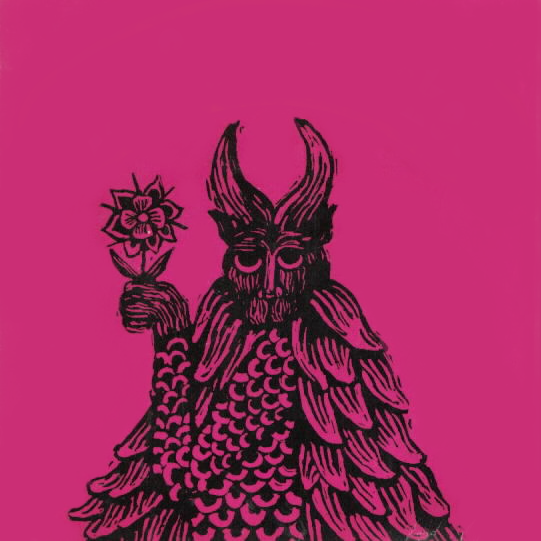Except in the mad scramble a crab can be left without a shell, leading to certain death. Make of that what you will.
How can this happen, if they all came with shells to begin with, and they can each only take one shell? Do they somehow end up with one crab too big for the remaining shell?
Because it’s usually two large crabs duking it out for the larger shell. When one of them inevitably loses, all the other crabs that are lined up, by size, no less, immediately ditch their shells for the next size up. Leaving behind the smallest shell for a large crab. I got to see this first hand at a beach in Mexico when I was a kid. I had no clue what was going on with all these crabs lined up from large to small, it was so cool to watch. But sad too.
Leaving behind the smallest shell for a large crab
Lmao imagine this happening with humans and Zucc or Musk ends up in some dilapidated house in Eastern Europe.
Yeah, this actually sounds fine to me. Since they’re entirely self-made men who acquired their wealth through their own hard work and gumption, it’s only a minor setback.
The original situation is more like a disabled person getting a topmost flat in a 9 floor building without an elevator.
Sad for the crab, but happy news for a seagull or octopus or something.
That would be okay too, let’s have the MTV Cribs guys duke it out and then everyone else gets a fitting home
Call it MTV Crabs?
That sounds like a totally different type of show about celebrities
It’s not always a perfect lineup and you can get two fighting for a shell (not necessarily the largest), and they can’t go back to their old shell because it’s now taken.
That crabs me bro.
Yeah… Still better than the current system :/
Feels like a good time to drop the snail vs. slug housing meme.

That doesn’t make any sense.
The crabs should assign value to the shells to encourage more shell discovery.
I want to be a commi crab.
We’re more like other kinds of crabs that if stuck in a bucket will pull down any other crab that dares attempt escape.
One of us! One of us!
Wait are you telling me restructuring our society to be as cruel as we incorrectly narrativize nature to be was all for nothing?!
The crabs do that through self organization. There’s nothing stopping anyone from building a group of like minded people to do it.
The landlord is stopping me
Conclusions are in our own interpretations. Here’s an example of a cynical take of the same situation:
I just learned that if a hermit crab finds a new shell that is too big, it will wait for other hermit crabs
So a less powerful crab cannot take full advantage of the shell, but recognizes its value to larger more powerful crabs. This is also an argument for scalping. If you find an expensive console or GPU which you can’t afford long term, but you know you could carry the debt temporarily, you could buy it yourself then sell it to someone else later who could afford long term and you would personally pocket the profit. It could be argued that thats what the original-large-shell-finding small crab here is doing: scalping.
who need new shells to gather and then they will organize themselves by size and trade shells.
The original smaller crab knows that larger crab will cast off its current shell, which would be substantially better than the shell the smaller crab has, so it can still personally gain from finding the big shell it can’t use, but its accepting a hand-me-down cast off only when the larger more powerful crab gets something better.
and I am pissed that the crabs have a better housing market than we do.
So the poster desires a system where larger and stronger crabs should have their pick of the housing market, and less powerful crabs simply have to take whatever smaller, less desirable housing, is left over.
Again, this is just a different interpretation for the meme. I’m not advocating for a position.

The crab story could just as easily be cynically re-written as an example of capitalism/free-market approach.
desires a system where the larger
and strongercrabs should have their pick of the housing market andless powerful(smaller) crabs simply have to take whatever smaller,less desirablehousing is left over.Power and strength have nothing to do with it, they aren’t fighting over who gets the bigger shell, they’re trading.
Smaller doesn’t mean less desirable, otherwise the small crabs would not give up the big shell voluntarily. They want a shell that fits there size, not the biggest one.
This system takes into account size as opposed to our current housing system, which is all about power (in the form of wealth). We’d be better off if we considered size as we have a lot of small families in big houses (wealthy empty nesters) and big families in small houses (poorer families just starting off in a small apt) and redistribution those could help both parties.
The problem is that we are in a “bigger is better” mindset, and that empty nest family doesn’t want to give up their house even though they don’t need it.
desires a system where the larger and stronger crabs should have their pick of the housing market and less powerful (smaller) crabs simply have to take whatever smaller, less desirable housing is left over.
Power and strength have nothing to do with it, they aren’t fighting over who gets the bigger shell, they’re trading.
If there are two crabs each with a need for the large shell, they will fight over it. Power of the winner can absolutely determines the outcome of who gets the shell (or who may die trying).
“In the field, we also occasionally observed 2 or 3 tug-of-war queues radiating out from a single vacant shell, with the largest crabs in each queue struggling to gain controlof the vacant shell. Such tug-of-wars between multiple queues appeared to inhibit vacancy chains as in some cases this situation lasted up to 4h without any crabs moving into the vacant shell. These findings indicate that the formation of hermit crab queues and other linear dominance hierarchies involves more complex social interactions than previously thought(Chaseetal.2002).”
source: Social context of shell acquisition in Coenobita clypeatus hermit crabs.PDF
Smaller doesn’t mean less desirable, [snip] They want a shell that fits there size, not the biggest one.
It doesn’t always, but it can absolutely mean less desirable. If two equal size crabs both have a need for the larger shell, and there is only one larger shell, then shells that are too small are less desirable (undesired?).
otherwise the small crabs would not give up the big shell voluntarily.
Apparently there are circumstances when the smaller crab doesn’t give up voluntarily, and is instead ripped in half by the larger crab.
This system takes into account size as opposed to our current housing system, which is all about power (in the form of wealth). We’d be better off if we considered size as we have a lot of small families in big houses (wealthy empty nesters) and big families in small houses (poorer families just starting off in a small apt) and redistribution those could help both parties.
Your are stating a subjective opinion. Your opinion is certainly valid, but it is not a fact.
The problem is that we are in a “bigger is better” mindset, and that empty nest family doesn’t want to give up their house even though they don’t need it.
Its not nearly as simple as “bigger is better” for that empty nest example. If it were, we’d see empty nesters (which are typically at the height of the lifetime wealth) automatically purchasing even larger houses when the kids leave into adulthood. That isn’t typically what happens. They keep the current home they had when they had children.
It’s like, the opposite of scalping. You can look at anything through the terms of markets and opportunity costs, but most of it is myths about how the world works
There’s no exchange here, there’s no loss, only gain. A shell that’s too big isn’t an investment, it’s a danger. The crab that waved the others down doesn’t benefit more than any other crab, it’s just a mutually beneficial redistribution of shells
Again, I’m playing devils advocate here to highly a cynical take. This isn’t my position.
The crab that waved the others down doesn’t benefit more than any other crab, it’s just a mutually beneficial redistribution of shells
You’re assuming a perfect distribution of resources equal to the needs of all, but studies show it doesn’t always work out that way and there’s a hierarchy and a struggle for the prime resources in the hermit crab society.
“In the field, we also occasionally observed 2 or 3 tug-of-war queues radiating out from a single vacant shell, with the largest crabs in each queue struggling to gain controlof the vacant shell. Such tug-of-wars between multiple queues appeared to inhibit vacancy chains as in some cases this situation lasted up to 4h without any crabs moving into the vacant shell. These findings indicate that the formation of hermit crab queues and other linear dominance hierarchies involves more complex social interactions than previously thought(Chaseetal.2002).”
source: Social context of shell acquisition in Coenobita clypeatus hermit crabs.PDF
Once again, I don’t have a horse in this race, I’m just participating in the discussion, not advocating policy or reflecting my views on our human society.
What incentive is there to even make shells anymore.














